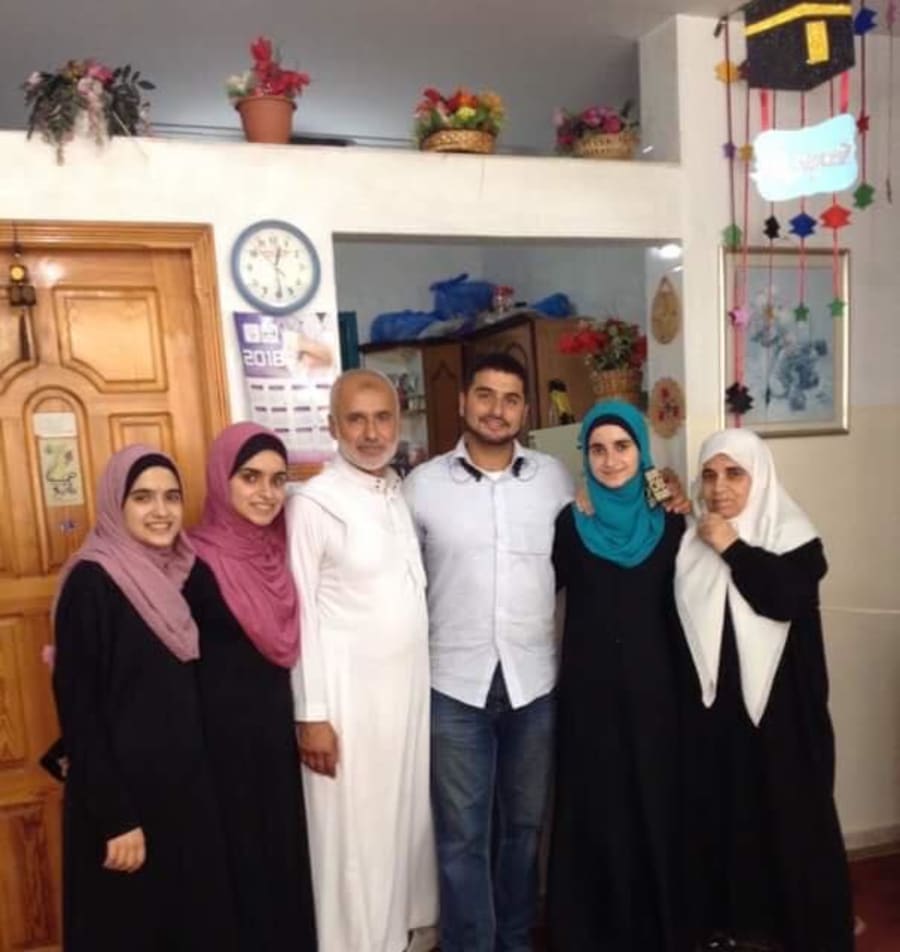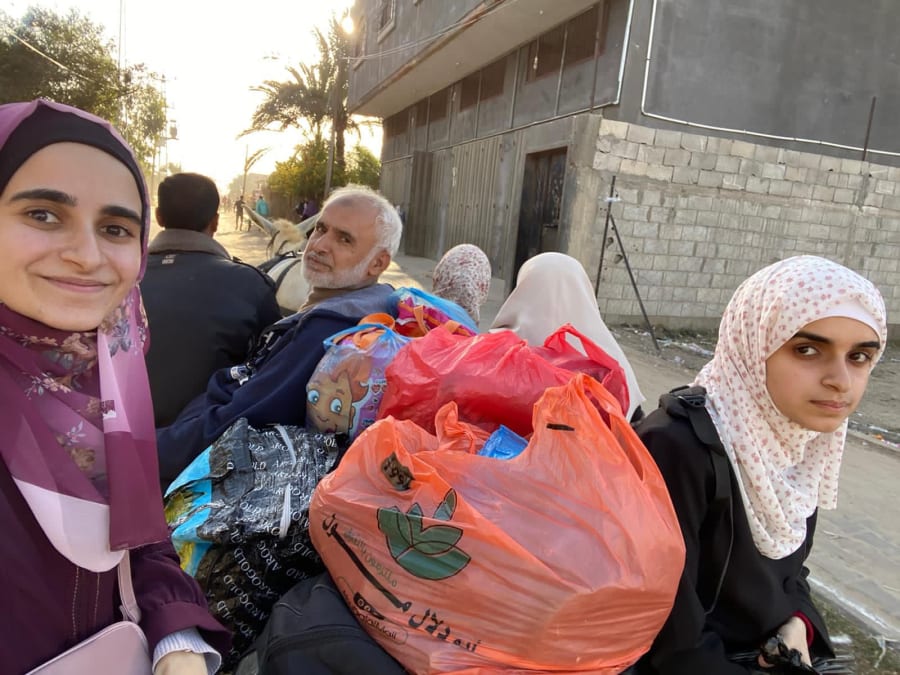ANN ARBOR, Mich. – “There’s really no safe places over there,” said Yamaan Saadeh over the phone.
The Ann Arbor neurosurgeon has family members trapped in Gaza as the conflict between Israel and Hamas continues, a good reminder that overseas wars have local consequences.
Recommended Videos
Saadeh grew up in Tree Town, is an assistant professor at the University of Michigan, and works at Michigan Medicine, far away from his father, stepmother and half-sisters.
Since October 7, 2023, fighting between Hamas and the Israeli government has killed more than 25,000 people and injured nearly 63,000 more, according to the Gaza-based Ministry of Health.
Saadeh’s family had to flee their home in the hopes of finding safe spaces. He said there were times when contact was hit or miss and he wouldn’t hear from them for four or five days at a time. Now that they are closer to the border -- and their cell signal is stronger -- they can contact him more regularly.
But that doesn’t mean they aren’t in danger.
“People ask ‘Oh, they’re in a safe place, right?’ And I’m like ‘No, not really.’ Even safe zones are getting bombed. Families sheltering in those areas are dying by the dozens,” Saadeh said.
“A lot of housing has been destroyed. A lot of people are in tents and clustered in homes.”
His dad, Salman Saadeh, stepmom Heyam Saada, and three siblings Huda, Heba and Shahd, are living with 50 other people in a single-family home. Everyone shares a single bathroom.

“There’s few options and you’re lucky if you have a roof over your head. And, unfortunately, a lot of those houses are getting bombed.”
As for his family’s health--they’re losing weight rapidly as there is little to no food available.
“There’s no clean water. Even salt water is hard to get now,” he said. “It’s basically a race against the clock when you’re living on your body’s reserves for however long that can be.”
As a medical professional, Saadeh understands the implications of that, and so do his half-sisters who were medical students before the conflict.
“It’s very morbid to think about that happening to your family.”
His stepmom, Heyam, was a middle school teacher and before retirement, Saadeh’s father was a university professor in Gaza. He is also a Wolverine, having graduated from the University of Michigan with a Ph.D. in Chemistry in the 80s.
Saadeh said he somehow manages to juggle raising his own family and caring for patients, but worrying about his family’s situation in Gaza is all-consuming.
But he is also very frustrated to see money being spent on weapons for other conflicts when very little is being spent on human aid in Gaza. Aid that, as reported by the Associated Press, is often turned away by those controlling border areas.

What can community members do?
Saadeh said it’s best to contact legislators and use any White House connections to get something done.
“It’s an urgent situation and we can’t be complacent,” he said, adding that policymakers need to know that American families are suffering because of the conflict. They need to make the issue of Palestinian suffering a priority.
“Money is not the limitation. It’s creating a political desire to make that happen,” he said.
Those wanting to contact their local Congressional representative can use this template, which will generate a letter about the family’s situation.
“Hopefully through my family’s case, that will make pathways for other people.”
Some local legislators are already helping. Saadeh said Rep. Debbie Dingell is aware of the situation, but he knows she already has a lot on her plate.
Read: Ann Arbor Public Schools approves Mideast cease-fire resolution that had stoked controversy


